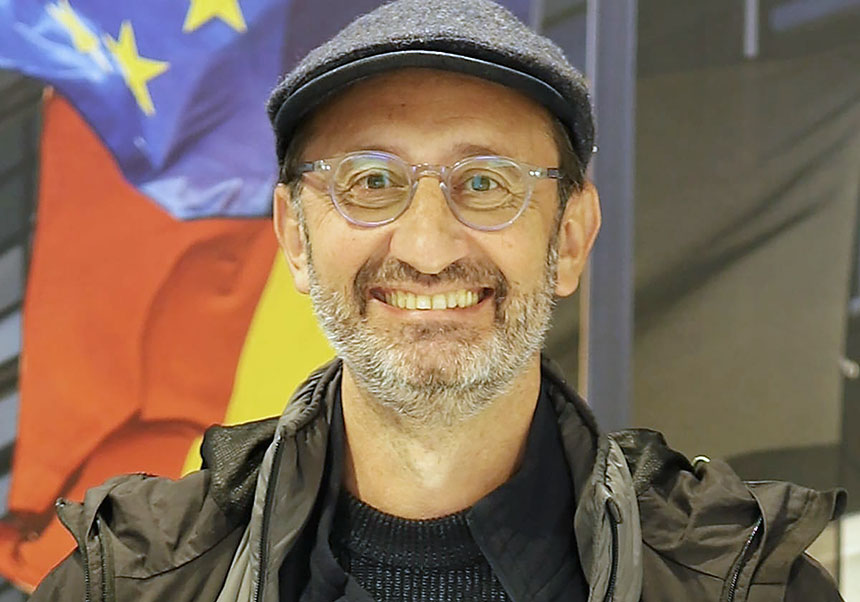A team of the Universitat analyses the development of rural areas as post-COVID windows of opportunity
- Office of the Principal
- July 3rd, 2020
The research team UDERVAL of the Universitat de València has started two research projects about the effects of COVID-19 on rural development and revaluation of villages as windows of opportunity. This team's research, which belongs to the Institute for Local Development of the Department of Geography and History, is being carried out by Javier Esparcia, Irune Ruíz-Martínez and Jaime Escribano.
The work is part of the European Union's ROBUST project and it is directed by the Professor of Geography Javier Esparcia. The main purpose is to make progress in knowledge about the potential that rural areas have as areas of opportunity, and to what extent this can contribute, in turn, to a better urban-rural territorial organisation.
As the Professor of the Faculty of Geography and History explains, until now it had been observed that many rural areas were depopulated and abandoned. The increasing population's ageing, the fall due to emigration and the low birth rate have contributed to this tendency. It is also the result of the decline in the supply and availability of both public and private services, mobility problems or access to internet services, among others.
However, after the lockdown due to the COVID-19 health crisis, according to the UDERVAL team, rural areas are rising in value. Considering the mobility restrictions and the increase in teleworking options, part of the citizenry has realised that they are a reasonable residential alternative and that they offer an important quality of life. "But for that to happen, the needs of population have to be met", they point out.
The team research of the Inter-university Institute for Local Development wants to make this tendency clear and to detect measures to favour it. That is why the first study, 'Rural resilience against COVID-19: mobilization of the productive framework and answer to the needs of the rural population', is a research that aims to analyse how rural areas have developed resilience mechanisms in response to the conditioning factors derived from the health crisis.
By gathering data from different agents, they are confirming multiple examples of how rural people have continued to have access to all kinds of supplies. Thus, it has been proved that reduced mobility may not be an obstacle as assumed and aspects related to the response of the productive framework and local population have been highlighted. In addition, "commercial framework has responded admirably to a critical situation, not only in terms of increasing profits, but also, and probably more important, in terms of community service, a deeply rooted value and a social asset extremely important among rural communities", the study states. Besides, according to the research team, where this commercial framework, which has become a real solidarity network, was not able to reach, the inhabitants resorted to transport services that have been equally effective, so that practically all rural inhabitants have had their basic needs met.
On the other hand, the second research work, 'Access to new communication technologies in rural areas: brake or stimulus as post-COVID windows of opportunity?', analyses which measures can be applied to improve and prepare these areas in order to give them a new opportunity.
Health crisis has highlighted that rural areas are also areas of opportunity and that public administrations must make a great effort to reduce the digital divide, in line with the objectives of the European Digital Agenda, which plans the access of each inhabitant to connections of at least 30 Mbps before ending 2020.
For that reason, from UDERVAL, within the framework of ROBUST project, and in collaboration with the Valencian Federation of Municipalities and Provinces, they are carrying out a research along with all the rural municipalities of the Valencian Community. The aim is, beyond the data provided by operators, to find out what the real situation is in our towns in aspects such as the availability of internet services and the level of satisfaction of their inhabitants, the economic sectors that are most negatively affected, the degree of digital transformation in which city councils are or the actions that would be necessary to improve services and contribute to a significant reduction in the digital divide, and, consequently, to improve the rural areas' positioning as windows of opportunity in the post-COVID-19 era.
File in: Recerca, innovació i transferència , Facultat de Geografia i Història , Institut Interuniversitari de Desenvolupament Local (IIDL)















